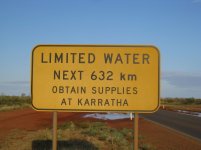2LaneCruzer
Epic Contributor
Can't remember if it was the same book or not, but did the planet have high gravity, everyone had to be armed, very quick, very strong and a good shot? I have that book, can vaguely remember the cover, but the book is stored in a box in the barn.... I think there was a sequel to the first book.
Later,
Dan
Sounds like the same one! I recall the protagonist needing a body guard, who turned out to be a youngster that was a crack shot with his pistols. One passage I recall very vividly, was where a space ship was unloading, and the passengers were in clear glass or plastic containers. Something called a "Sting Wing" attacked the containers, injecting poison from his wings into the containers, which turned them milky. It's been over 50 years since I read that book!

